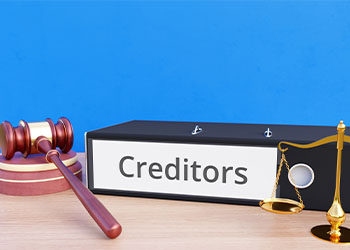What to Do If a Creditor Doesn't Respect Your Discharge
Jan. 27, 2022
 Filing for bankruptcy is a promising option to help you achieve financial relief during times of financial distress. At the end of your bankruptcy case, the Nevada court will discharge all qualifying pre-petition debts, and you won't need to pay back such debts. However, some creditors may fail to respect your debt discharge order. An experienced Nevada bankruptcy attorney can enlighten you on what to do when a creditor isn't respecting your debt discharge and help protect you from creditor harassment.
Filing for bankruptcy is a promising option to help you achieve financial relief during times of financial distress. At the end of your bankruptcy case, the Nevada court will discharge all qualifying pre-petition debts, and you won't need to pay back such debts. However, some creditors may fail to respect your debt discharge order. An experienced Nevada bankruptcy attorney can enlighten you on what to do when a creditor isn't respecting your debt discharge and help protect you from creditor harassment.
Attorney Scott N. Tisevich has devoted his career to guiding clients through the complexities involved in bankruptcy proceedings. He's available to discuss your specific situation and help you understand what to do if a creditor objects to your discharge. Scott N. Tisevich will fight diligently to protect your legal rights and take appropriate legal action against the non-compliant party for creditor violation. The firm proudly serves clients in Reno, Churchill County, Carson City, Las Vegas, and the rest of Nevada.
Understanding Discharge
A debt discharge absolves a debtor from personal liability of certain qualifying debts and prevents the creditors owed from taking any action to recover the debts. Such debts that are eligible for discharge may include:
Personal loans
Medical debts
Credit card balances
Past-due utility bills
At the end of your bankruptcy case, the Nevada court will discharge all dischargeable debts. You won't have to repay such debts any longer, and the creditor cannot take any action against you or your property to collect the debts.
When Does Debt Discharge Occur?
Additionally, the period of the debt discharge depends on the bankruptcy chapter you petition for.
Chapter 7 Bankruptcy – Debts are discharged four months after filing your bankruptcy petition.
Chapter 13 Bankruptcy – Debts are discharged at the end of your repayment plan.
When the discharge order is issued, the bankruptcy court's clerk must send a copy of the final discharge order to the following parties or entities:
The debtor
The debtor's attorney
All creditors
The appointed trustee in the case
The trustee's attorney
The U.S. trustee
Upon receiving a copy of the discharge order, some aggrieved creditors may file a motion seeking that the bankruptcy court not discharge specific debts.
Creditor Objection to Discharge
The trustee or creditors may try to object to your bankruptcy discharge. The creditor may file a complaint or an objection to the discharge in the bankruptcy court, requesting the court not to discharge specific debt that the debtor owes the creditor. Some common reasons for creditor objection include:
The debts were incurred immediately before filing for bankruptcy
The debts were obtained through fraud
The debts were obtained through misrepresentation
Among other requirements, the creditor must prove to the judge why the debt is nondischargeable or why the court shouldn't discharge such debts.
What Happens When a Creditor Files an Objection Motion?
Debtors are allowed to respond to the adversary proceeding. The case will then go through the discovery process. Both the debtor and the creditor—or their respective legal counsels—will be allowed to present their case and provide supporting evidence. A knowledgeable bankruptcy attorney can meticulously present your case in court and improve your prospects of achieving the best possible outcome.
What to Do When Creditors Attempt to Collect on a Discharge
When you file for bankruptcy—or once the final discharge order has been issued—creditors and collection companies are legally prohibited from taking any action to recover discharged debts. If the creditor continues contacting you after your bankruptcy discharge, you should notify your attorney right away. Your bankruptcy lawyer can help protect your rights and take suitable legal action against the delinquent creditor.
Let the Law Office of Scott N. Tisevich Help
If a creditor has failed to respect your debt discharge, you need to act quickly and hire an experienced bankruptcy attorney to evaluate your available legal options and decide the best course of action.
With more than four decades of extensive experience, Attorney Scott N. Tisevich has the knowledge and diligence to handle bankruptcy cases and protect clients in complex cases involving creditor harassment. As your legal counsel, Scott N. Tisevich can review all of the facts of your case and outline an effective strategy to prevent further creditor harassment. You deserve to uphold your right to a fresh financial start.
Contact the Law Office of Scott N. Tisevich today to schedule a simple case assessment with an experienced bankruptcy lawyer. Attorney Scott N. Tisevich can offer you the detailed legal counsel you need to navigate key decisions regarding your bankruptcy case and debt discharge. The firm is proud to serve clients in Reno, Nevada, as well as Churchill County, Carson City, Douglas County, and Lyon County.
